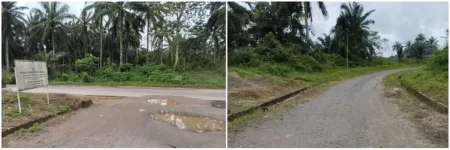By Kelvin Obambon
Despite efforts by individuals, governments and civil society organizations to end Gender Based Violence (GBV) in the society, the despicable phenomenon still rear its ugly head, thereby raising concern among stakeholders on how best to effectively tackle the menace.
It is in the light of this that a non-governmental organization, Gender And Development Action (GADA) is seeking partnership with the media, often regarded as the fourth estate of the realm, in pushing narratives that could eventually lead to the reduction of GBV incidents in Cross River and the south south region of Nigeria.
Globally, the UN Women estimated that 736 million women—almost one in three—have been subjected to physical and/or sexual intimate partner violence, non-partner sexual violence, or both at least once in their life (30 per cent of women aged 15 and older). This figure does not include sexual harassment.
The United Nations Development Programme (UNDP), reported that violence and harmful practices against women and girls happen every day in Nigeria, and most of the time they are not reported. Data from the Nigerian Demographic and Health Survey (NDHS) 2018 found that 9 percent of women aged 15 to 49 had suffered sexual assault at least once in their lifetime and 31% had experienced physical violence.
As per record from the United Nations Population Fund’s Reproductive Health and Family Planning Unit, Cross River State has one of the highest teenage pregnancy rates in the South South region, accounting for about 42%; and this can be attributed to Sexual and Gender Based Violence (SGBV).
Considering the foregoing, GADA, at the weekend, held a roundtable discussion with representatives of both mainstream and online media outfits in Calabar and proposed a one-year partnership plan, suggesting timeline for reducing GBV and thus exploring new ways in confronting the hydra-headed monster.
The partnership which will make for consistent media based engagement of GBV issues, hinges on a statewide reportage that will expose the enormity of GBV, especially in rural areas where access to vital information poses significant challenge to the fight against GBV.
Participants at the roundtable discussion linked the inability to effectively address GBV to non enforcement of the VAPP Law in Cross River, the weakness in security architecture and the absence of referral institutions. Consequent upon this, they however called for ongoing linkages with government and security agencies to build stronger coordinating mechanisms for addressing GBV.
Also, the National Orientation Agency (NOA), traditional and religious institutions were identified as key entry points which need to be explored and build upon as anti GBV agencies. These institutions will work in sync with a media hub that will be set up to generate, share, analyze, update and act upon critical GBV related information.
Furthermore, concern was also raised about the intersectoral nature of GBV and its underlying and predisposing triggers such as corruption, poverty, greed, substance abuse, alcohol, cultism and a host of others. In view of this, the participants agreed to seek an all encompassing approach towards addressing GBV and its related consequences in Cross River State.


